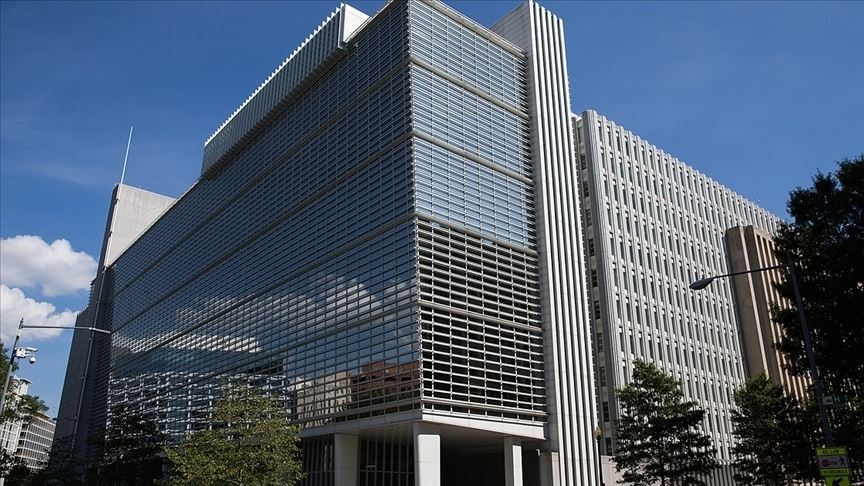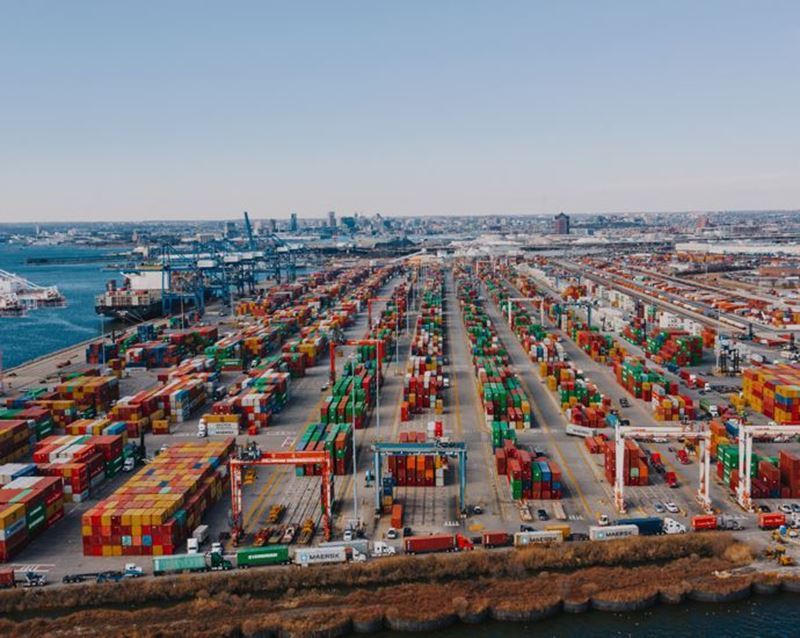The World Bank has published the June 2022 issue of its Global Economic Prospects Report.
The report noted that after more than two years of the epidemic, the effects of Russia's attack on Ukraine will accelerate the slowdown in global economic activity.
In the report, it was stated that the war in Ukraine increased commodity prices, supply cuts, food insecurity, poverty and inflation, contributed to tighter financial conditions, and increased financial fragility and policy uncertainty.
The economic outlook faces several downside risks, including rising geopolitical tensions, stagflationary headwinds, financial instability, continued supply shortages and worsening food insecurity, the report said, underscoring the importance of a strong policy response.
"Risk of stagflation increased"
In the report, it is stated that Russia's attack on Ukraine increased the damage done by the Kovid-19 epidemic to the global economy and increased the slowdown in the global economy, which could turn into a long period of weak growth and high inflation, and that this increased the risk of stagflation, which has potentially harmful consequences for both middle and low-income economies. reported.
In the report, it was stated that the global economy is expected to grow by 2.9 percent in 2022 and by 3% in 2023 and 2024. In its report published in January 2022, the World Bank predicted that the global economy would grow by 4.1 percent in 2022 and 3.2 percent in 2023.
In the report, it is stated that the growth expectation of developed economies for this year was reduced from 3.8 percent to 2.6 percent, the growth forecast of these economies for the next year was reduced from 2.3 percent to 2.2 percent, and the growth forecast for 2024 was reduced to 2.2 percent. It was reported that it was determined as 1.9.
In the report, the growth expectation of emerging and developing economies for this year was reduced from 4.6 percent to 3.4 percent, and the forecast for 2023 was reduced from 4.4 percent to 4.2 percent. The 2024 growth forecast of these countries was determined as 4.4 percent.
Turkish economy's growth forecast raised
In the report, which also includes the expectations regarding the Turkish economy, it was reported that the 2022 growth forecast for Turkey is 2.3 percent, 3.2 percent for 2023 and 4 percent for 2024.
The World Bank, in its report published in January 2022, predicted that the Turkish economy would grow by 2 percent in 2022 and 3 percent in 2023.
US and Eurozone growth forecasts for this year were revised down
In the report, the 2022 growth forecast of the US economy, which is included in the group of developed countries, was reduced from 3.7 percent to 2.5 percent, the 2023 growth forecast of the country was reduced from 2.6 percent to 2.4 percent, and the growth expectation for 2024 was lowered. recorded as 2 percent.
In the report, the growth forecast of the Eurozone economy for this year was reduced from 4.2 percent to 2.5 percent, and the expectation for 2023 was reduced from 2.1 percent to 1.9 percent. It is predicted that the Eurozone will grow by 1.9 percent in 2024.
Growth expectations of the Chinese economy have also been lowered
In the report, the 2022 growth expectation for the Chinese economy, which is among the developing countries, was reduced from 5.1 percent to 4.3 percent, and the 2023 growth forecast of the country was reduced from 5.3 percent to 5.2 percent, and the Chinese economy's growth in 2024 The growth forecast for the year was determined as 5.1 percent.
In the report, it was predicted that the Russian economy will shrink by 8.9 percent this year and by 2 percent next year, and to grow by 2.2 percent in 2024.
"It will be difficult for many countries to avoid a recession"
In his assessment of the report, World Bank President David Malpass stated that the war in Ukraine, the Kovid-19 lockdowns in China, supply chain disruptions and the risk of stagflation suppressed economic growth, "It will be difficult for many countries to avoid a recession." used the phrase.
Emphasizing that the danger of stagflation is significant, Malpass said that suppressed growth may continue for 10 years due to weak investments in most of the world, and there is a risk that inflation will remain higher for a longer period of time.











Comments
No comment yet.